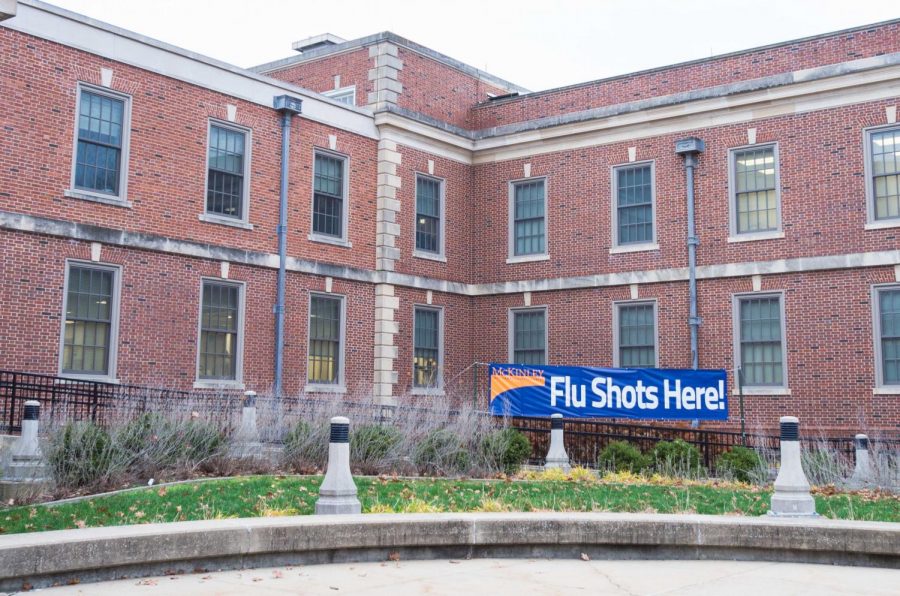12 possible cases of mumps follow last semester’s confirmed case
The outside of McKinley Health Center located at 1109 S. Lincoln Avenue on Dec. 4, 2017.
Feb 22, 2018
While there have been approximately 12 cases of possible mumps at the University in 2018, there has only been one case of confirmed mumps this academic year.
Eva Palmer, infection prevention and control coordinator at McKinley Health Center, confirmed these cases in an email and said the confirmed case occurred in December 2017.
Palmer said the difference in possible and confirmed mumps comes from a definition from the Centers for Disease Control and Prevention and the public health department.
“According to this definition, possible mumps is someone presenting with parotiditis (swelling of the parotid gland in the cheek),” Palmer said. “Confirmed (mumps) is with parotiditis and confirmed testing results.”
Mumps is a viral illness, common in the late winter or early spring, and it is spread through droplets of respiratory secretions, direct contact with infected fluids, like salvia, or fomites, like utensils.
Get The Daily Illini in your inbox!
The incubation period is 12-25 days from exposure to symptoms, according to the CDC, and people can be contagious approximately three to five days before the incubation period begins.
Symptoms include headaches, body aches, low-grade fever, decreased appetite and fatigue. Parotitis develops within 48 hours of symptoms, causing pain in front of and below the ears.
Palmer said the number of cases this year is comparable with last year, and while mumps cases are sporadic, outbreaks may occur.
Percy Focazio, freshman in LAS, said she has heard of mumps cases in Allen Hall and PAR, but is not worried about catching the illness.
Mercedes Heredia-Ferran, freshman in DGS, knew about a case of the mumps in Weston Hall.
Some students are taking precautionary measures to prevent the illness.
“I’ve gotten all vaccinations and I have gotten the booster,” said Angela Hyon, senior in LAS.
Two possible cases of mumps have been addressed by teaching assistants.
Li Shu, teaching assistant for PHYS 211, said in an email to his students that McKinley Health Center directed him to share advice with students on how to prevent the mumps.
Michael Dann, assistant professor in LAS, sent a similar email to his students in REL/PHIL 110 that a student in the 11 a.m. Monday and Wednesday lecture was diagnosed with possible mumps.
Prevention tips from McKinley include washing hands with soap and water, covering your nose and mouth with a tissue when coughing or sneezing, not sharing eating and drinking utensils, refraining from close contact with possibly sick individuals and avoiding touching the eyes, nose and mouth.
McKinley did not confirm the origin or location of the mumps cases at the University.






